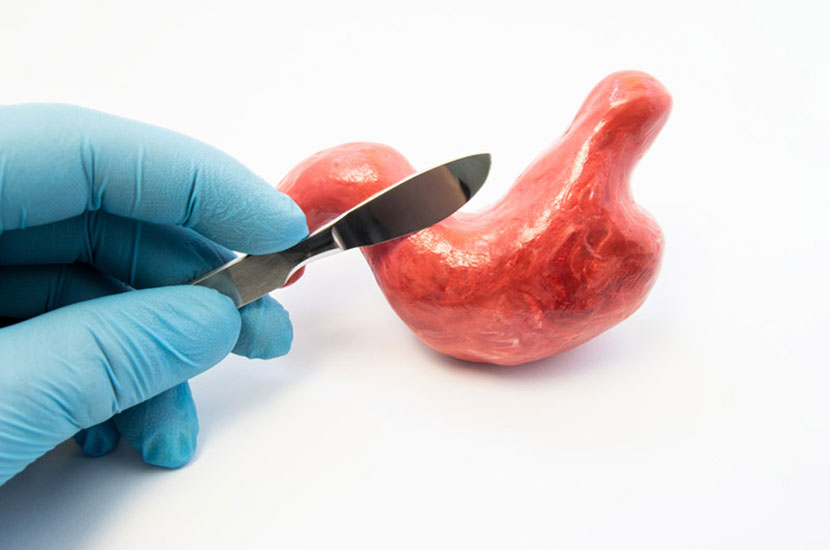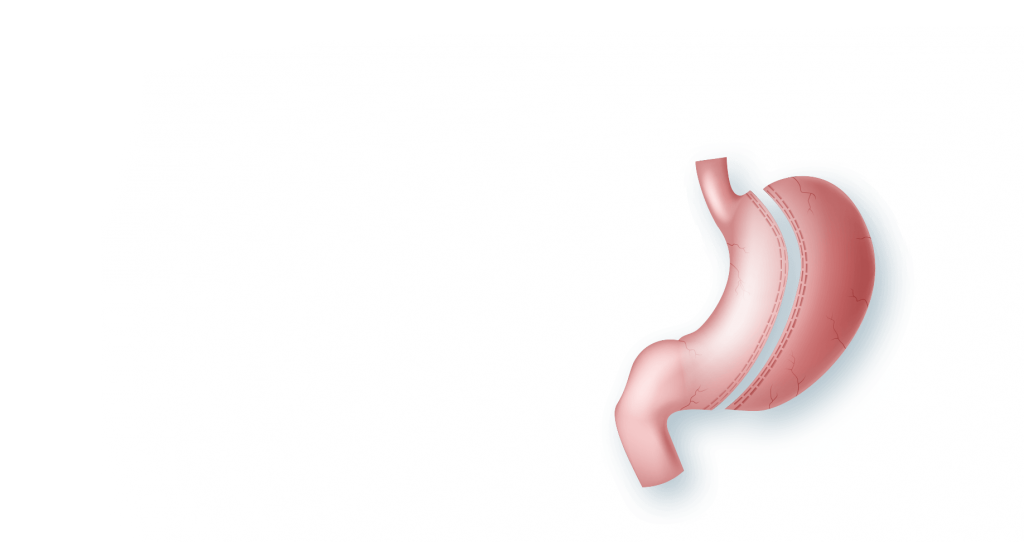
We live in a time when people are becoming more and more aware of a healthy life. More and more people are exercising almost every day, taking care of their diet and daily calorie intake. In addition to health, physical appearance is the goal they strive for. In extremely obese people, the weight loss process can be laborious and time-consuming. Therefore, they increasingly resort to liposuction, and even more often to gastric sleeve surgery.
Table of Contents
What is gastric sleeve surgery?

img source: surgeryexperts.eu
Gastric sleeve resection is a restrictive operation that is one of the effective methods of surgical treatment of obesity. Restrictive surgery means that the size of the stomach decreases, which is why satiety is felt significantly faster even after eating a smaller amount of food. The operation can be performed by making a large incision in the abdomen (open operation) or by introducing special surgical instruments and instruments with a video camera on top (laparoscope) through several smaller incisions (laparoscopic operation). As part of the operation, more than half of the stomach is removed and a part of the stomach is left that has the appearance of a thin vertical “sleeve” or a banana. The remaining part of the stomach is surgically closed. It is necessary to continue with a proper diet and regular physical activity after the operation, because this regime, in addition to the operation, will enable you to achieve the desired goal and prevent the return of lost weight.
The operation takes 1 to 2 hours. It is very important that you find a doctor you will trust and who will answer all the questions you have so that you are best acquainted with every next step, from preparation for gastric sleeve surgery to recovery, Dr Govind Krishna can help you with it.
Who is a candidate for gastric sleeve surgery?

img source: britannica.com
Extremely obese people opt for this operation, with a body mass index greater than 30, ie people in whom the use of drugs, exercise, and improvement of eating habits do not give the desired results. Weight loss is not only essential for better physical appearance, gastric sleeve surgery is often performed to reduce the risk of developing diabetes 2, high cholesterol, high blood pressure, and obstructive sleep apnea. It has been proven that, after this operation, it is possible to lose up to 50 kilograms in 1-2 years.
What effect is achieved after gastric sleeve surgery?

img source: b-cdn.net
Being overweight is not only a problem of an aesthetic nature, but it is also a disease that is very difficult to cure and can affect several organs in the human body. Gastric sleeve surgery can prove to be a good solution for those who have already tried to lose extra pounds in other ways. When other medical methods have not been successful, gastric sleeve surgery can offer long-term solutions to lose weight for patients who have a serious problem with obesity.
The gastric sleeve procedure, also known as sleeve gastrectomy, is an operation that reduces the size of the stomach to encourage weight loss. Approximately 80 percent of the stomach is surgically removed, leaving the tubular portion of the abdomen in place and permanently removing the remainder. The remaining stomach may initially have about 4 ounces or 120 milliliters, which is a significant drop from the normal size of the stomach. This means that the patient will consume much smaller amounts of food, ie that satiety will occur sooner, which leads to weight loss. In some cases, although rare, patients regain a few pounds.
Although many are worried about excess skin after gastric sleeve surgery, this problem is easily solved surgically. However, the doctor’s advice is for the patient to do so approximately two years after the operation, after losing the planned weight.
What are the side effects and potential risks of gastric sleeve surgery?

img source: medicalnewstoday.com
Like any other surgical procedure, this one carries with it possible contraindications. After the operation, an internal infection is possible, ie leakage of contents from the rest of the stomach, which can lead to peritonitis. Peritonitis is an inflammation caused by an infection of the abdominal membrane. Although this operation is considered a relatively safe procedure, among the contraindications we can encounter hemorrhage – bleeding from a surgical wound, which can lead to shock. Like most other surgeries, the risk of deep vein thrombosis and pulmonary embolism are possible in the postoperative period. Here we can add irregular heartbeat and atrial fibrillation, as well as pneumonia. Also excluded are gallstones, as well as the development of anemia or osteoporosis caused by inadequate absorption of nutrients.
Gastric sleeve surgery can also cause additional complications such as stenosis, heartburn, and vitamin deficiency. Vitamin deficiency can be compensated by supplements because the part of the stomach that is removed is the main culprit for the absorption of vitamins. You can treat heartburn with over-the-counter medications, and stenosis (closing part of the stomach sleeve) can cause stomach upset.
Recovery from gastric sleeve surgery

img source: baribuilder.com
A few days after the operation, you will be able to slowly return to your daily activities. Of course, it is necessary to pay attention to diet. If the patient continues with an unhealthy diet and consuming carbonated juices after the operation, there is a possibility of gaining weight. After the operation, light food is recommended, and you need to drink smaller amounts of fluids, but more often during the day. In the case of overeating, nausea and even vomiting may occur. If the patient does not follow the doctor’s advice, the stomach will stretch at midnight, and losing weight will be impossible.
Final thoughts on gastric sleeve surgery

img source: cloudfront.net
The recovery and outcome of gastric sleeve surgery will mostly depend on the patient and his will to change his current life habits by accepting responsibility in his life and avoiding behaviors that will lead him back to obesity. This largely depends on the support and understanding of friends and the environment, because they need to be with the person who underwent this operation even when she falls down. It is important to be persistent and understand that results do not come overnight, but require patience and time.







